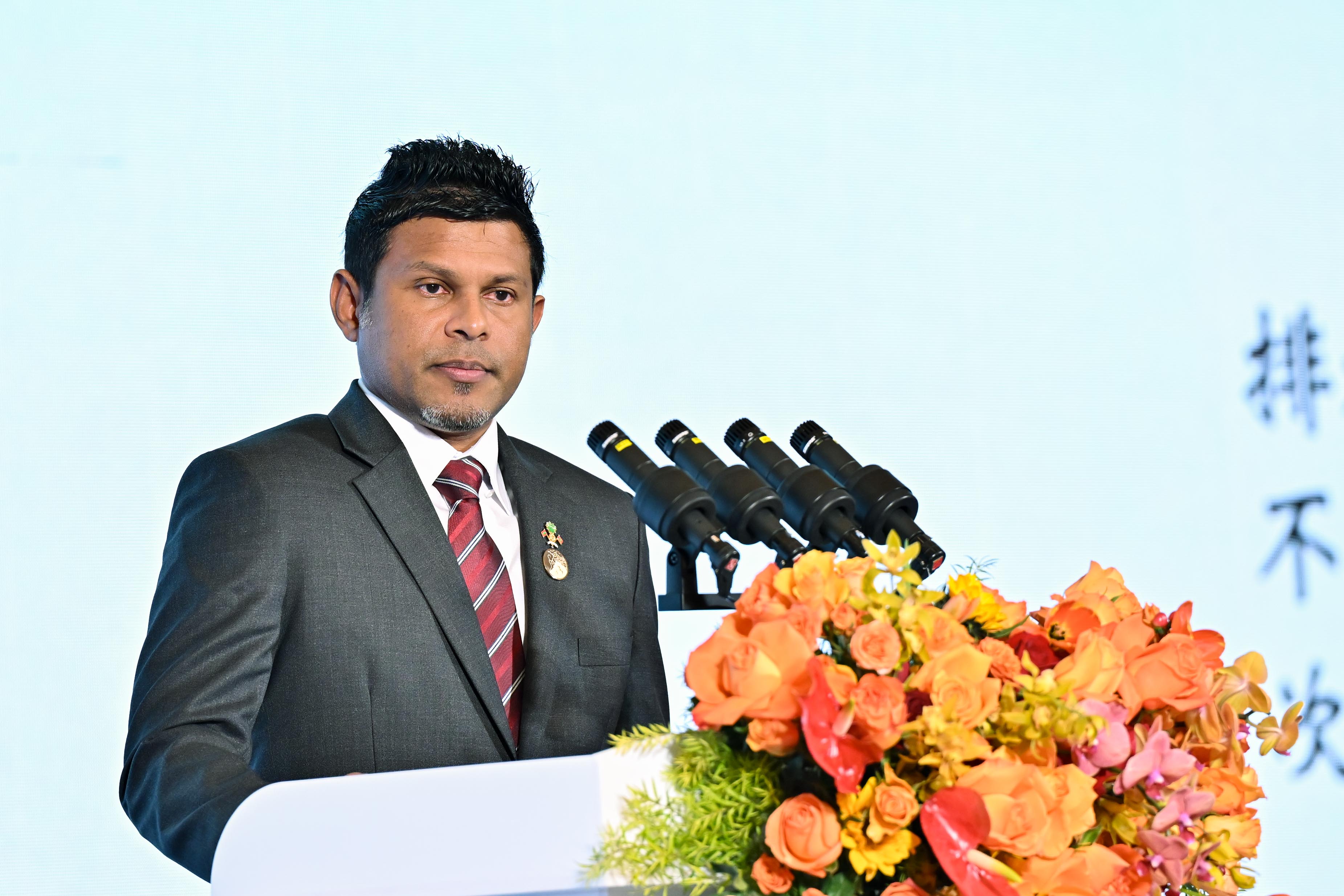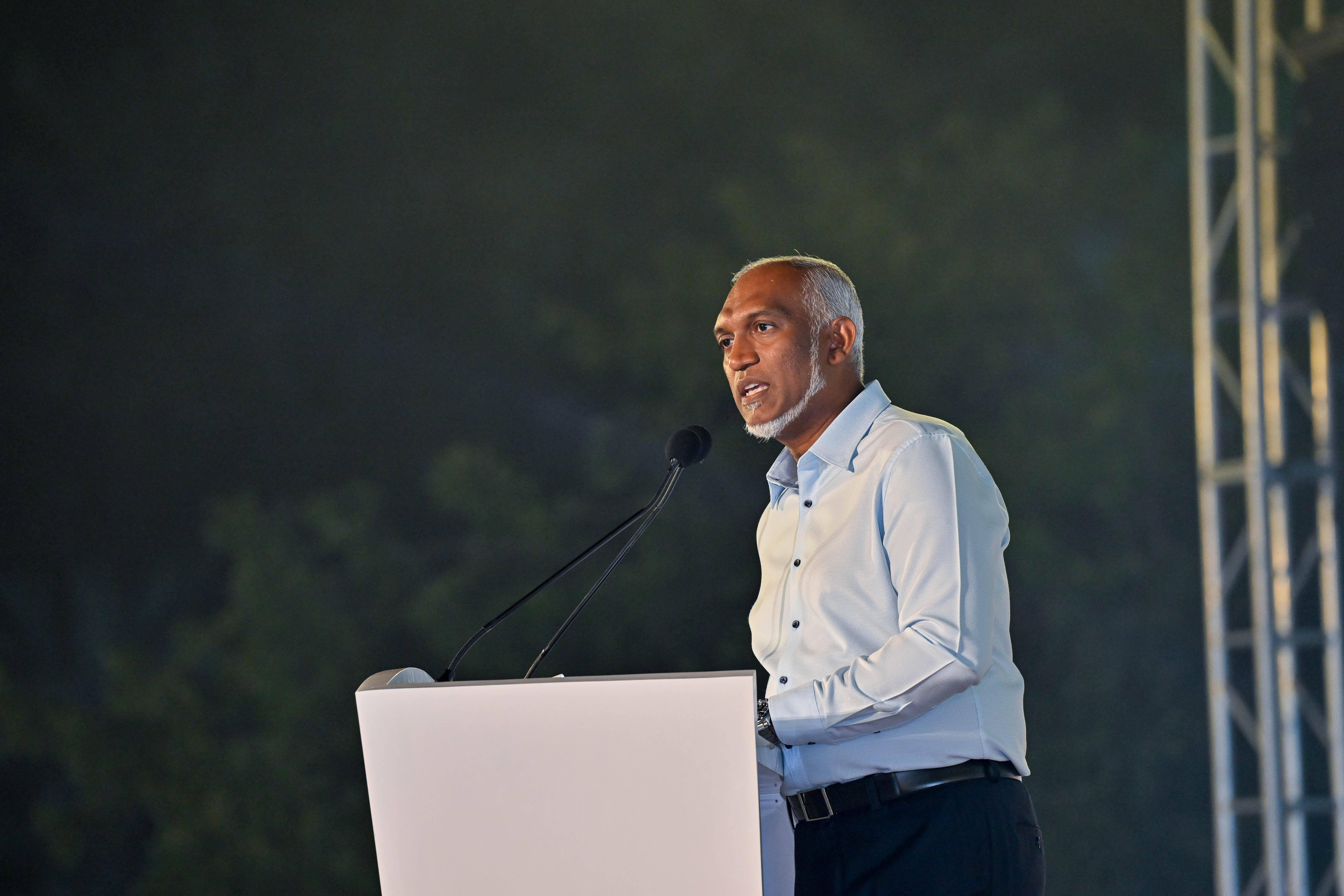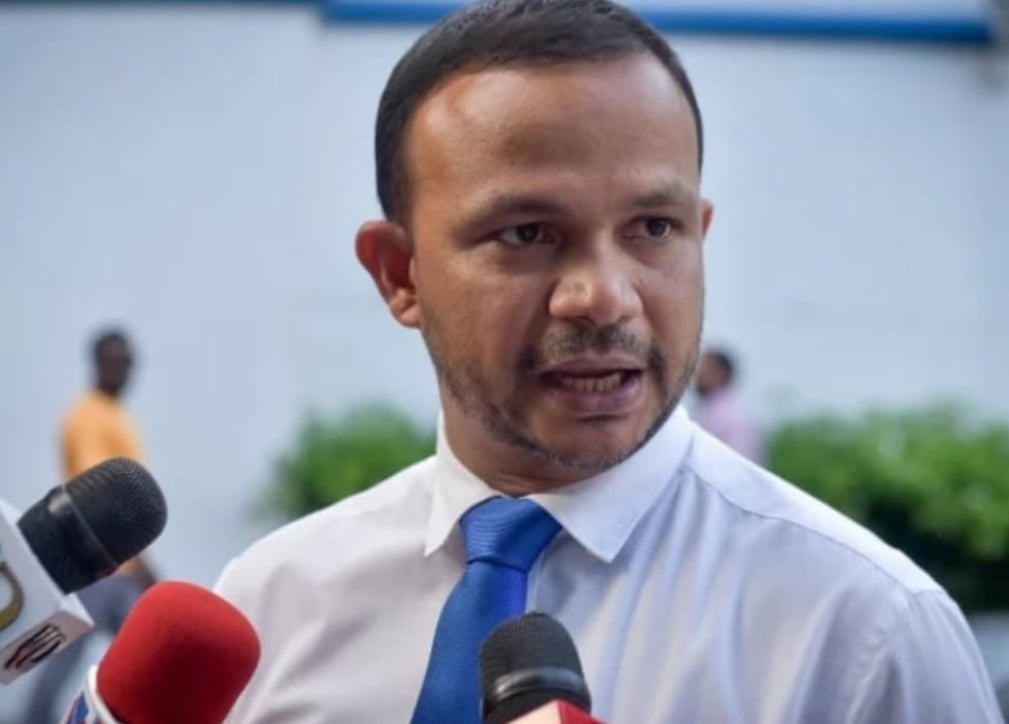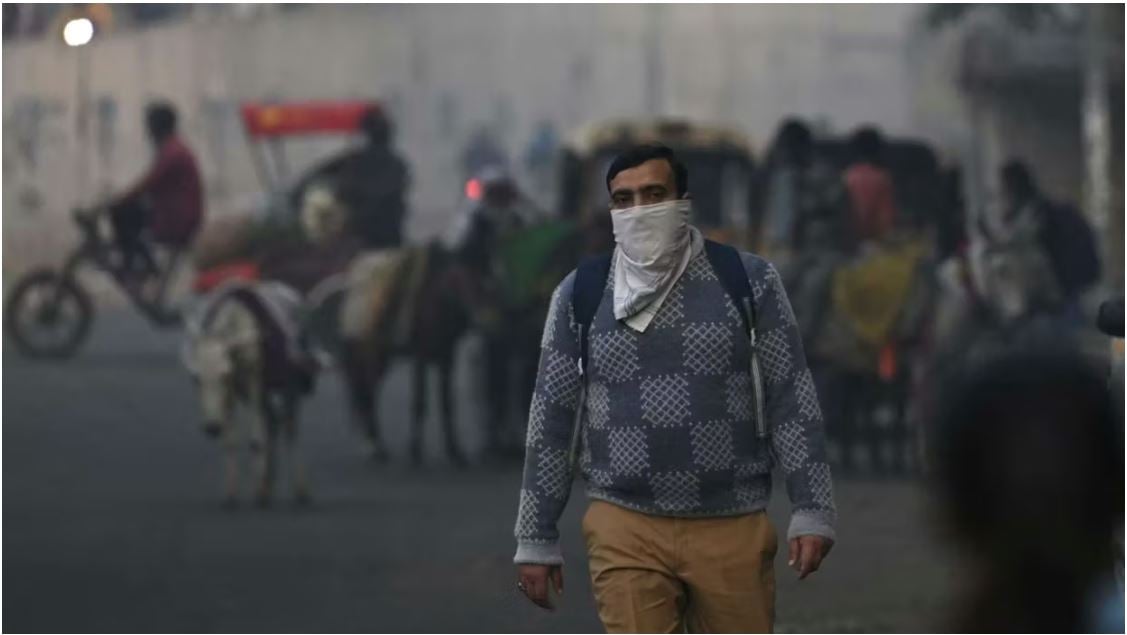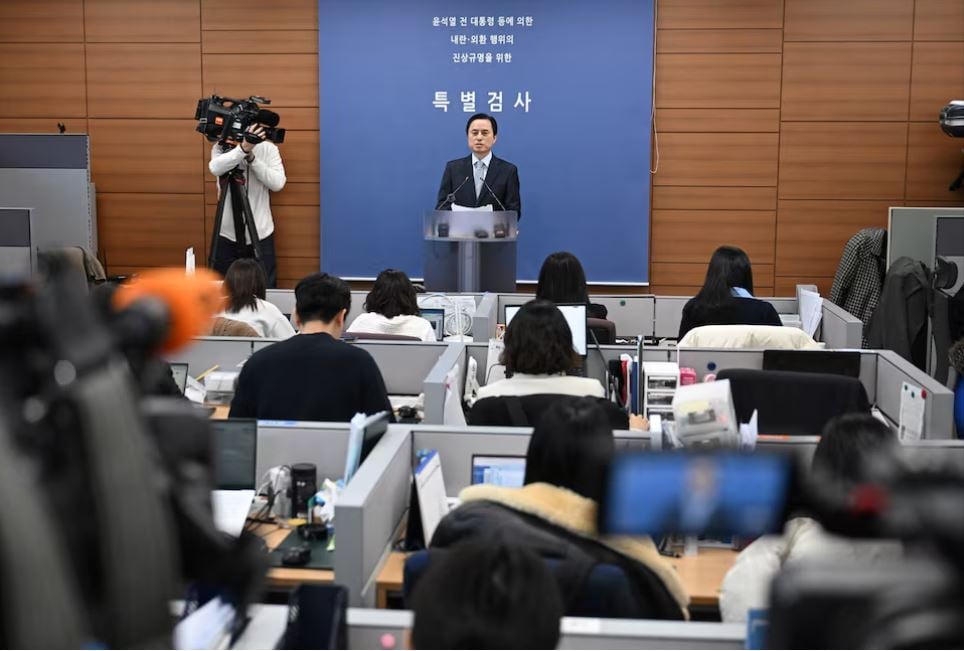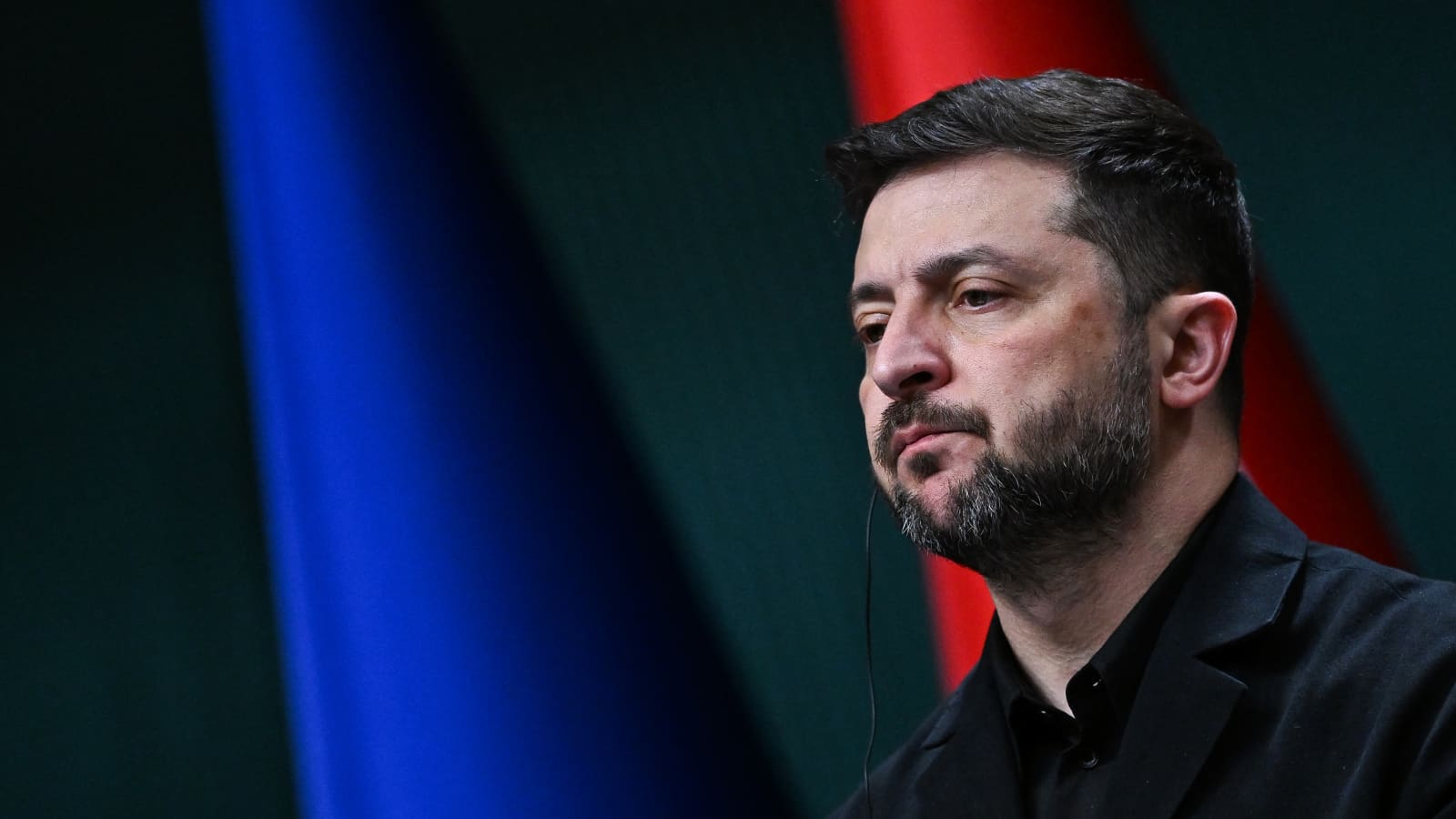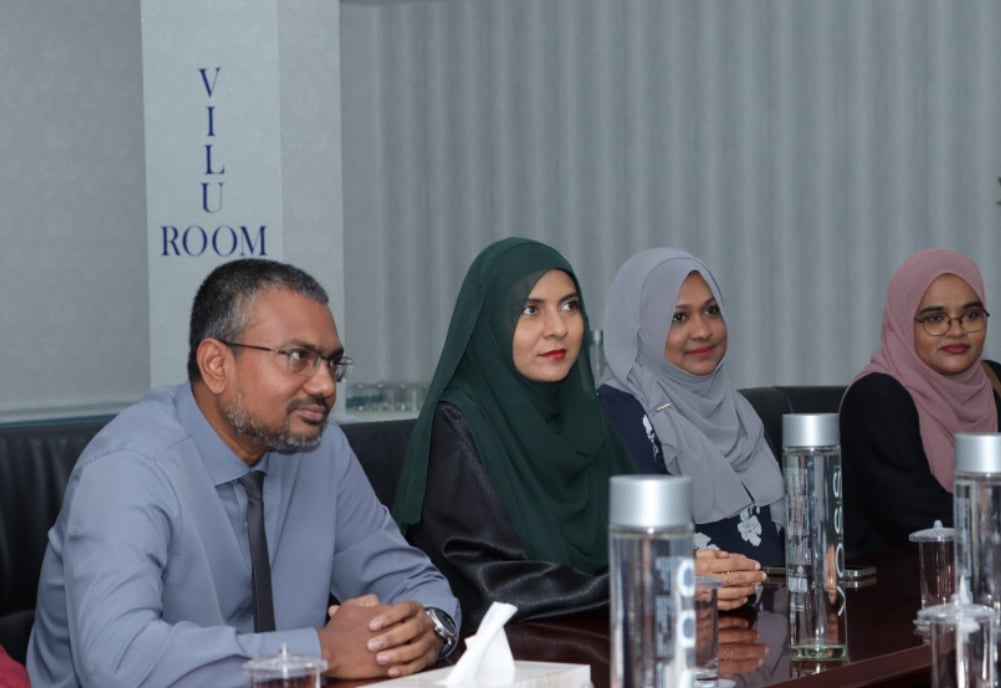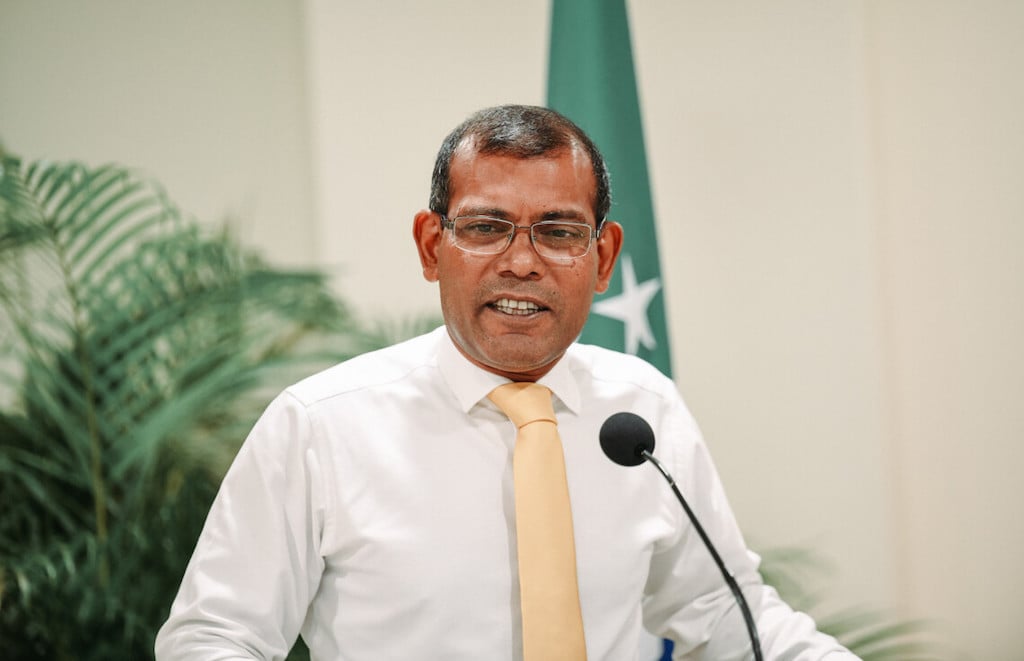Vice President His Excellency Uz Hussain Mohamed Latheef has called for a fair and equitable climate transition to mitigate global warming and safeguard marine biodiversity, which is vital for the blue economies of vulnerable states.
He made these remarks at the Opening Ceremony of the Third China-Indian Ocean Region Forum on Blue Economy Development Cooperation, held in Kunming, China.
In his address, the Vice President emphasized the integral role the ocean plays in sustaining the livelihoods of Maldivians, describing the nation as “children of the sea” who have relied on marine resources for centuries. He noted that the Maldives’ primary income sources, such as tourism and fisheries, are increasingly threatened by climate change, marine pollution, and illegal, unreported, and unregulated (IUU) fishing. He warned that these challenges jeopardize fish stocks, coastal livelihoods, and food security, highlighting the detrimental impact of these issues on the nation's economy.
The Vice President also highlighted the Maldives' commitment to ethical and sustainable fisheries practices, such as pole-and-line fishing, which ensures no by-catch and minimal harm to marine habitats.
Latheef further stressed that Small Island Developing States (SIDS), like the Maldives, face a disproportionate climate burden despite contributing minimally to global emissions. He underscored the Maldives' determination to tackle the impacts of climate change, despite limited resources, and mentioned President Dr. Mohamed Muizzu's ambitious plans to enhance the nation’s climate action efforts.
In closing, the Vice President reiterated the strong bilateral relationship between China and the Maldives, expressing gratitude for China’s continued support in the development of the Maldives, particularly in advancing the nation’s climate and blue economy goals.
He made these remarks at the Opening Ceremony of the Third China-Indian Ocean Region Forum on Blue Economy Development Cooperation, held in Kunming, China.
In his address, the Vice President emphasized the integral role the ocean plays in sustaining the livelihoods of Maldivians, describing the nation as “children of the sea” who have relied on marine resources for centuries. He noted that the Maldives’ primary income sources, such as tourism and fisheries, are increasingly threatened by climate change, marine pollution, and illegal, unreported, and unregulated (IUU) fishing. He warned that these challenges jeopardize fish stocks, coastal livelihoods, and food security, highlighting the detrimental impact of these issues on the nation's economy.
The Vice President also highlighted the Maldives' commitment to ethical and sustainable fisheries practices, such as pole-and-line fishing, which ensures no by-catch and minimal harm to marine habitats.
Latheef further stressed that Small Island Developing States (SIDS), like the Maldives, face a disproportionate climate burden despite contributing minimally to global emissions. He underscored the Maldives' determination to tackle the impacts of climate change, despite limited resources, and mentioned President Dr. Mohamed Muizzu's ambitious plans to enhance the nation’s climate action efforts.
In closing, the Vice President reiterated the strong bilateral relationship between China and the Maldives, expressing gratitude for China’s continued support in the development of the Maldives, particularly in advancing the nation’s climate and blue economy goals.





